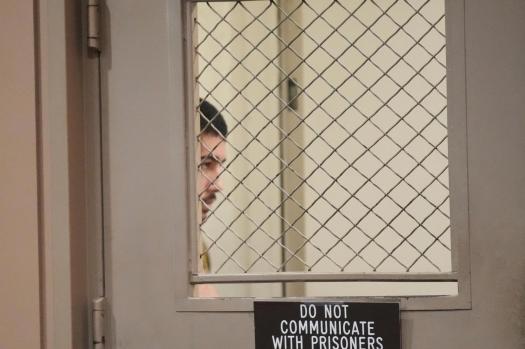According to Amanda Hernández of Stateline.org,
Ashley, a 29-year-old mother of two who was up in Los Angeles’ Boyle Heights neighborhood, was charged with child abuse and neglect in September 2023 as part of a criminal case involving substance usage.
She lost contact with her younger daughter as a result of her arrest.
However, Ashley was paired with a professional advocate who took the time to learn about her and her case, rather than being sentenced to jail time. She finished two inpatient programs for substance abuse therapy. She began a one-year outpatient therapy program in April 2024.
She had reconnected with her now 2-year-old daughter by that June. Ashley’s criminal case was completely dropped in April 2025, a year after she started outpatient treatment, after she fulfilled all the conditions of her court-mandated plan. (Stateline consented to conceal Ashley’s entire identity in order to avoid any reprisals in the current dispute over her older child’s custody.)
Related Articles
-
Today in History: June 21, US Constitution becomes law
-
Husband rearrested in the death of Suzanne Morphew, whose remains were found after 3-year search
-
Air traffic controllers in Florida briefly lost radar after fiber optic line was cut
-
R. Kelly claims prison officials plotted to kill him. Judge denies his release
-
Man whose parents were kidnapped after $245M Bitcoin theft has pleaded guilty to federal charges
Ashley recounted feeling like a lost dog when she initially walked inside the courtroom. However, she found strength and support through a collaborative defense concept led by the national group Partners for Justice.
Two-year Los Angeles County client advocate Jaya Duckworth assisted Ashley in obtaining identification, completing and signing necessary paperwork, and establishing connections with outpatient treatment and therapy.
Ashley, a recent high school graduate with some college experience, intends to go back to school and keep up with her two-year-old. In addition, she is collaborating closely with her legal team to reclaim custody of her daughter, who is nine years old.
In an interview with Stateline, Ashley stated, “I don’t think I would have been reunited with my daughter without her help.” Now that my child is here, I feel I can go into that courtroom with confidence and keep trying.
Her story is representative of an increasing trend in public defense that acknowledges that lawyer advocacy is frequently insufficient on its own.
However, this change is taking place as the national tide is turning the other way, with numerous political figures reiterating demands to combat crime by enforcing stricter laws and stepping up police presence.
According to Alaina Bloodworth, executive director of the Black Public Defenders Association, there is a wealth of evidence indicating this strategy is ineffective. Bloodworth had previously worked for six years as a public defender in Louisiana. Emotions drive tough-on-crime policies. It isn’t supported or grounded on any kind of data.
For communities of color, it is undoubtedly ineffective, and it hasn’t worked for us either.
According to a 2019 study by the University of Pennsylvania Law School and the Rand Corp., holistic defense—which incorporates social, legal, and community support—may improve clients’ long-term results in addition to reducing jail and prison time. Holistic representation decreased the chance of a prison sentence by 16% and the projected sentence length by 24%, according to a research that contrasted holistic and standard public defense models in New York City over a ten-year period. Additionally, it saved taxpayers an estimated $160 million in housing expenses for prisoners.
In some areas of the nation, this strategy has quietly gained traction and frequently produces outcomes that are hard to deny. Some public defenders and advocates are arguing that holistic support is not an add-on but rather an essential component of good legal representation as local governments balance public safety and other fiscal considerations.
According to Michael Halkias, the lead public defender for Cumberland County, Pennsylvania, a holistic defense gives the client the agency and autonomy they require to make their own decisions. And in the end, I believe it benefits people when they feel empowered to make choices when they are in a system that tells them they have no control.
Client advocates have been employed by the county office for almost a year.
The 1990s saw the rise of holistic defense, which combines resources and social support with legal counsel. The objective is to address the root causes of criminal conduct, including as poverty, substance abuse, and trauma, which might occasionally lead individuals to enter the legal system in the first place, rather than to condone or ignore it.
According to Bloodworth, meeting those fundamental requirements guarantees that they won’t reappear in the system. A team of experts representing someone is crucial to ensuring that individual receives the best representation since I am not trained in meeting social needs in the same way that social workers or client advocates are.
Partners for Justice, a nationwide charity that started operations in 2018, is one of the groups spearheading this change. By placing qualified client advocates in public defender offices, the group established a collaborative defense model in which they collaborate with lawyers as a cohesive, client-led defense team.
While some of the client advocates have first-hand experience from the criminal justice system, others are recent college graduates who commit to two-year fellowships with hopes of pursuing careers in law or public policy. Addressing the root causes and averting many of the most severe repercussions of criminal legal engagement are the team’s objectives.
As of right now, Partners for Justice has put advocates in 17 states and 25 public defense agencies. Through new collaborations with the Colorado State Public Defender and the New Jersey Office of the Public Defender, the group broadened its scope earlier this year.
In order to put clients in direct contact with the assistance they require, many client advocates create their own networks of nearby service providers.
At times, it involves guiding a client through a strategy for their release from jail. At other instances, it’s just turning up with food or holding their hand in court.
Duckworth, the client advocate who worked with Ashley, the 29-year-old mother from California, stated that helping to restore the humanity and dignity that the system denies them is one of the most significant aspects of her work. The Los Angeles County Public Defender’s Office employs over 20 advocates, including her.
By enabling them to concentrate on legal strategy instead of managing the intricate demands of numerous clients at once, the model relieves the strain on overburdened public defenders.
“We have a lot of cases,” said Jennifer Sellitti, a public defender in New Jersey. However, we are also beasts, so I’m going to handle everything on my own.
“Changing that mindset was one of the biggest challenges,” she said.
Telling lawyers, “We want you just to lawyer,” was the most difficult task, Sellitti told Stateline. But in all three of our pilot offices, that very, very soon became an amazing partnership.
According to Sellitti, since implementing the Partners for Justice client advocate program in three locations throughout Atlantic, Hudson, and Monmouth counties in March, the offices have facilitated clients’ access to treatment programs faster than they would have through more conventional channels like recovery court or probation.
Additionally, the collaborative defense concept fosters confidence between the defense team and its customers. According to some client advocates, defendants frequently believe that public defenders don’t give a damn about their cases. However, many public defenders are overburdened, making it practically hard to give every case the consideration it requires.
Paul Boyd, a client advocate with the New Jersey Office of the Public Defender in Atlantic County, stated that we have been useful in helping to close that communication gap between the attorneys and their clients.
Boyd, who served time in prison, claimed that his experience helps him gain the trust of clients who can identify with his situation and, as a result, are more aware of the overwhelming caseloads their lawyers deal with. According to him, such relationship frequently increases a client’s willingness to work with their defense team.
However, some states’ budget cuts may jeopardize the advocacy efforts.
Two of the largest law firms in Multnomah County, Oregon, that provide public defense services are considering cutting off a program that has aided scores of defendants in the county. The decline in property tax receipts during the epidemic has resulted in a $15.5 million budget deficit for the county.
A 33-year-old Alaska Native who has lived in Portland for almost ten years is one of the people the program has helped. The resident was detained last fall and charged under Measure 11, Oregon’s mandatory-minimum sentencing statute; due to safety concerns, they requested that their name not be publicized. They faced the threat of incarceration.
Following their nearly month-long stay in county jail, they collaborated with Cierra Carlson, their client advocate, to create a release plan that included their goals for substance use rehabilitation, a list of resources they wanted to connect with, and additional efforts to avoid the criminal justice system.
According to their statement in an interview with Stateline, they were concerned that they would be ignored and treated like a number.
However, they checked themselves into a culturally-specific drug rehab facility for individuals of color after being released. With Carlson’s assistance, they were able to renew their health insurance and food stamps and find more stable accommodation.
They added, “I feel so much more seen than I have in the past.”
However, Carlson’s job may soon be terminated.
The proposed budget for Multnomah County would eliminate $621,261 in funding for client advocate or case manager positions at Multnomah Defenders Inc. and the Metropolitan Public Defender, a nonprofit law firm that has a state contract to provide public defense services. This would eliminate all six positions in the county. In an effort to conserve money, county officials are considering a number of possible cuts.
However, two changes have been put forth to maintain the program. While one would allocate roughly $415,000, which would probably result in the loss of one or two posts, the other would fully reinstate the $621,261 in funds.
Carlson expressed concern about the potential consequences for her customers in the event that the program is discontinued. I’ve witnessed the impact it can have.
The anticipated cuts coincide with a crisis in Oregon’s public defense system.
According to the most recent state data, almost 3,700 individuals who have been charged with crimes around the state do not currently have legal representation. Since they were never given an attorney, over 1,700 more people have skipped their court appearances and are currently facing outstanding arrest warrants.
Grant Hartley, the director of the Metropolitan Public Defender, stated that even if this program is temporarily discontinued, we will not abandon it since it is essential to our work as well as the prosperity and security of our city.
States Newsroom, 2025. Go to the website stateline.org. Tribune Content Agency, LLC is the distributor.












